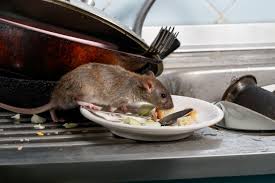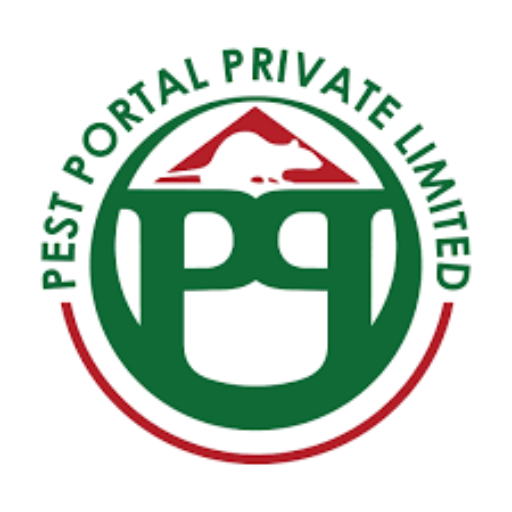
The Rodent Menace: How Rats Pose A Threat to Public Health and Food Safety in Zimbabwe
Rats pose a threat to public health and food safety in Zimbabwe. Call 0772593344 for safe, affordable and professional rodent control services today.
Rats, specifically the black rat ( Rattus rattus ) and brown rat ( Rattus norvegicus ), pose a significant and multifaceted threat to public health and food safety in Zimbabwe. This threat is exacerbated by a complex interplay of factors including poverty, inadequate sanitation, urbanization, and limited access to effective rodent control strategies. Understanding the nature and scope of this problem is crucial for developing effective interventions and mitigating the substantial risks to human health and economic well-being.
Disease Transmission: A Major Public Health Concern
Rats are reservoirs and vectors for a wide range of zoonotic diseases, meaning diseases that can be transmitted from animals to humans. In Zimbabwe, these diseases represent a serious public health concern, often disproportionately affecting vulnerable populations. Some of the most significant diseases transmitted by rats include:
Leptospirosis:
A bacterial infection spread through contact with contaminated water or soil. Rats excrete Leptospira bacteria in their urine, which can contaminate food, water sources, and the environment. Leptospirosis can manifest as a mild flu-like illness or progress to severe organ damage, even death. Outbreaks are often associated with flooding and poor sanitation, conditions frequently encountered in parts of Zimbabwe.
Salmonellosis:
Rats carry Salmonella bacteria in their intestines, contaminating food and surfaces through their feces and urine. Salmonellosis can cause gastroenteritis, characterized by diarrhea, vomiting, fever, and abdominal cramps. Foodborne outbreaks linked to rat contamination are a recurring problem globally, including in Zimbabwe. Inadequate food storage and handling practices increase the risk.
Hantavirus:
While less prevalent in Zimbabwe than other diseases, hantaviruses are carried by rodents and can cause severe respiratory illness. Exposure typically occurs through inhalation of aerosolized virus particles from rat droppings or urine.
Plague:
While less common in recent decades, the potential for plague transmission remains. Rats can carry the bacteria Yersinia pestis, which causes plague. Outbreaks, though rare, highlight the ongoing risk associated with rodent infestation.
Other diseases: Rats can also transmit other diseases such as typhoid fever and tularemia. They also cause various parasitic infections through their feces, urine, and saliva.
Food Safety and Economic Impact
Beyond direct disease transmission, rats significantly compromise food safety and security in Zimbabwe. Their contamination of food sources, both during production and storage, leads to considerable economic losses. This threatens food security, particularly among vulnerable populations. The impacts include:
Crop damage: Rats cause substantial damage to crops. These include in fields and storage facilities, leading to reduced yields and increased food prices. This affects both farmers’ livelihoods and the affordability of food for consumers.
Contamination of stored food: Rats contaminate stored food supplies, rendering them unsafe for consumption. This is especially problematic in households and small-scale storage facilities lacking effective rodent control measures. The cost of discarding contaminated food adds to the economic burden.
Food spoilage: Rat infestations lead to food spoilage due to gnawing, contamination with feces and urine, and the introduction of microorganisms. This reduces the shelf life of food and increases waste.
Impact on trade: Rodent infestations can lead to the rejection of exported agricultural products, significantly impacting the agricultural sector’s economic viability. This underscores the need for robust rodent control measures to meet international food safety standards.
Contributing Factors and Mitigation Strategies
Poverty and inadequate sanitation: Poor sanitation, including inadequate waste management, provides ideal breeding grounds for rats. Poverty limits access to resources for effective rodent control.
Urbanization: Rapid urbanization leads to increased population density and creates environments conducive to rodent proliferation. Improper waste disposal in urban areas further exacerbates the problem.
Limited access to rodent control: Lack of access to effective and affordable rodent control methods, including rodenticides and traps, hampers efforts to manage rat populations. Furthermore, knowledge and awareness about rodent control are often limited.
Mitigation Strategies
Professional Pest Control Services: At Pest Portal Zimbabwe, we offer safe, effective and professional rodent control programs that ensure your rodent problem is kept at bay. We employ integrated pest management strategies that combine different methods, such trapping, and the judicious use of rodenticides for sustainable rodent control.
Improved sanitation and waste management: Also, implementing comprehensive waste management systems, including regular garbage collection and proper disposal, is crucial in reducing rat breeding sites.
Community-based rodent control programs: Moreover, engaging communities in rodent control initiatives through education is important. Awareness campaigns, and the provision of affordable and effective control methods is also vital.
Strengthening food storage practices: Again, there is need to promote safe food storage practices. These include the use of rodent-proof containers and storage facilities, will significantly reduce food contamination and spoilage.
Improved surveillance and monitoring: Establishing robust surveillance systems to monitor rat populations and detect outbreaks of rodent-borne diseases is essential for timely intervention and prevention.
Conclusion
In conclusion, the threat posed by rats to public health and food safety in Zimbabwe is substantial and complex. Addressing this issue requires a concerted and multi-sectoral effort involving pest control companies government agencies, healthcare providers, communities, and international organizations. By implementing comprehensive and sustainable rodent control strategies, Zimbabwe can significantly reduce the health and economic burdens associated with this persistent rodent menace.


